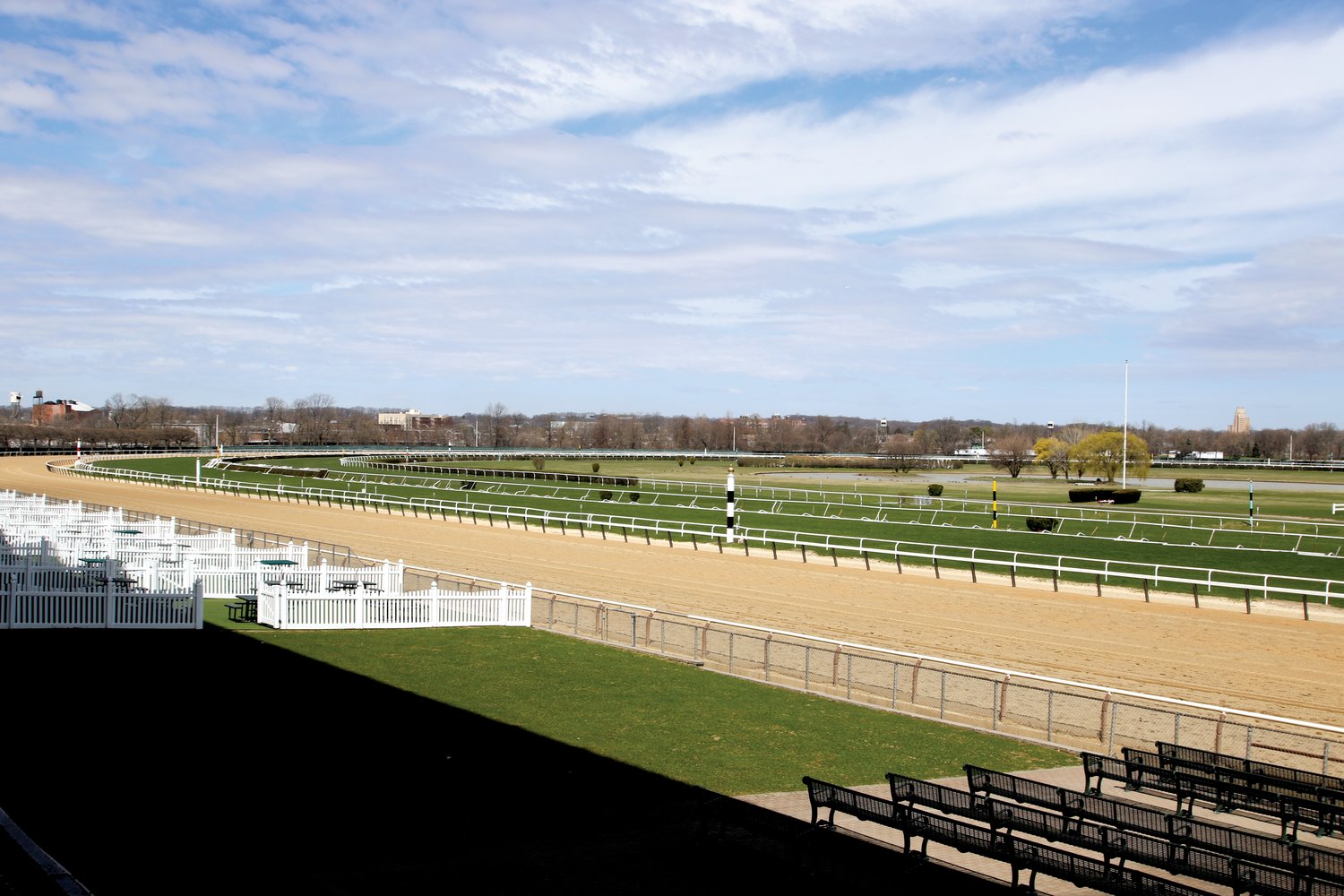NYRA officials consider renovations at Belmont Park
New York Racing Association officials are considering new renovations to the racetrack at Belmont Park, as work continues on the state’s revitalization efforts.
Association representatives have discussed potential changes with local elected officials over the past few months, including making the 45-acre infield into a more attractive community park, winterizing the track and reducing the size of the grandstand.
The track has not been renovated since 1968, according to Patrick McKenna, NYRA’s communications director, who said “the time has come to modernize” the facility, which is “an iconic property cherished by generations of sports fans and home to some of the greatest moments in sports history.”
Unfortunately, State Assemblywoman Michaelle Solages noted, the racing season at Belmont Park is limited to the spring, summer and fall because the track is not winterized and not energy-efficient, and the grandstand is so large that it casts a shadow over the track, making it freeze during the winter.
“This could be a great winter facility,” said Solages, a Democrat from Elmont, adding that every president and CEO of NYRA since she took office in 2012 has proposed changes to make Belmont the primary horseracing facility in southern New York and to eliminate racing at Aqueduct, which, Solages said, could become a full-time casino.
“It makes sense,” said State Sen. Todd Kaminsky, a Democrat who represents part of Elmont, noting that the proposed renovations to the infield would make Belmont a “destination that people want to go to.” But, Kaminsky said, NYRA officials are only starting to discuss the potential renovations — and before anything could happen, they would have to present their ideas to the Elmont community.
“If this is a baseball game,” Kaminsky said, “we’re just in the first inning here.”
Horseracing officials have previously discussed other options to make Belmont more attractive to fans, with NYRA officials sending select fans a survey in October 2019 to gauge interest in proposed new eateries and seating arrangements at the park. Among the proposals fans were asked to vote on were renovations of the backyard picnic area, rooftop access, access to the infield on race days, a new social patio and luxury suites. Each option would increase the price of a ticket to the park’s showcase event, the Belmont Stakes.
Those discussions, however, were derailed by the coronavirus pandemic, and, Kaminsky said, talks have resumed only recently.
“I’m encouraged by the conversations taking place around needed improvements to the Belmont racetrack, grandstand and infield,” State Sen. Anna Kaplan, a Democrat from Great Neck who also represents parts of Elmont, said in a statement. “As with every discussion around changes to the Belmont property, however, I’ve been insistent that the community’s voice and needs are at the front and center of any proposal that could move forward.”
In 2019, Gov. Andrew Cuomo approved legislation to create a Belmont Park Advisory Board, comprising five community members to be named by the county executive, three members of NYRA, two more Elmont residents appointed by the Hempstead town supervisor, two residents of the Village of Floral Park, two members of the Queens community board and one resident of the Village of South Floral Park. The bill was introduced by Solages and Kaplan in the interest of establishing a body that would give local residents a voice at Belmont, like those in place at Saratoga and Aqueduct racetracks.
The board, which offers public endorsements or rejections of the latest developments at the racetrack, must meet at least twice a year to discuss Belmont Park happenings and pass input from the local community along to the state’s Franchise Oversight Board, which oversees NYRA.
Any changes to the racing facility would be made in addition to the state’s redevelopment of the park with a 19,000-seat arena for the New York Islanders, a new Elmont train station, a 250-room hotel and a retail village. Additional renovations, which the state approved in February, include a new parking garage on Hempstead Turnpike, a 10-foot wall separating the park and adjacent Elmont neighborhoods and hydrogen fuel cell stations for the shuttle buses that will transport guests around the park and to and from the Elmont Long Island Rail Road station.
Work on the redevelopment project is continuing.






